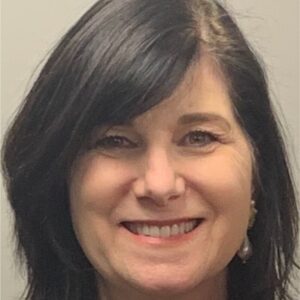Leaders of Tomorrow: Anna Ortigara, MSN
 Anna Ortigara, MSN, confesses that she didn't start working in long-term care "with any great passion."
Anna Ortigara, MSN, confesses that she didn't start working in long-term care "with any great passion."
"It was sort of happenstance" that she began conducting education in nursing homes in the early 1980s after working as a nurse in surgical and pediatric areas, she says.
But, spending time with residents and staff, she quickly fell in love with the field. "It really became clear to me, when I was in a nursing home, doing this education, doing this work—I felt like this is where I belonged," Ortigara says.
Since that time, long-term care has seen many changes. Clinical care has improved to address health issues that can occur—but don't have to be inevitable—with aging. Residents' rights increasingly are acknowledged and encouraged, improving their quality of life. A social model of treatment for those with dementia has emerged as an alternative to the medical model. And recognition is growing that valuing direct care workers helps improve their ability to honor the wishes of residents, as evidenced by the increasing use of practices such as consistent assignment (Ortigara prefers the terminology "consistent relationship"), team huddles to improve communication, peer mentoring and self-management of teams.
"Not that we've gotten all the way" with culture change, she adds, "but in so many areas across the country and across the world, you see organizations doing highly innovative things."
Ortigara has been there through all of those improvements—leading efforts to ease and hasten their adoption through her work, which has included speaking, writing and participation in professional organizations in addition to her other roles.
In one of those roles, as vice president of the Campaign for Cultural Transformation for Life Services Network (now LeadingAge Illinois), she helped create the LEAP—Learn, Empower, Achieve, Produce—program, "an evidence-based model…to empower nursing assistants and nurses to be in more effective relationships with each other" to make LTC settings more person-directed. The LEAP program was implemented and tested in 600 nursing homes, and a Mather Institute of Aging evaluation found it effective. (One Mather LifeWays community's use of LEAP won Long-Term Living's OPTIMA Award in 2010, and the program has earned other accolades as well.)
In another role, as director of residential care services at the Rush Alzheimer's Disease Center of Rush University Medical Center, she developed an intensive training program called Preparing Leaders for the Future of Dementia Care, which is still being used.
More recently, she spent more than six years with The Green House Project as resource development director, where she helped adapt the Paraprofessional Healthcare Institute (PHI) Coaching and Consulting Services coaching model for use by the small-house nursing home model. And early this year, she moved to PHI Coaching and Consulting Services as an organizational change consultant, via which she is helping a range of service providers learn and implement proactive communication and team-based problem-solving skills.
"I’ve come to really believe that using a coaching approach to leading change as the model or framework creates the capacity, the possibility of all the rest of the transformation for the organization," Ortigara says. "You can build the most beautiful building, you can have the most wonderful dining, you can not wake people up in the morning, but at the end of the day, it’s really about these relationships, changing the organizational culture, and PHI is really supporting organizations to do that."
Outside of PHI, Ortigara is encouraging broader adoption of culture change through work with the Pioneer Network, a leader in the movement. She currently is the organization's board president and has been active with the group for about six years.
"I feel so lucky to have come into our field when I did, at a time where we have truly been a part of trying to profoundly change it," she says.
Be sure to watch Long-Term Living's website this week for profiles of all four 2014 Leaders of Tomorrow.
I Advance Senior Care is the industry-leading source for practical, in-depth, business-building, and resident care information for owners, executives, administrators, and directors of nursing at assisted living communities, skilled nursing facilities, post-acute facilities, and continuing care retirement communities. The I Advance Senior Care editorial team and industry experts provide market analysis, strategic direction, policy commentary, clinical best-practices, business management, and technology breakthroughs.
I Advance Senior Care is part of the Institute for the Advancement of Senior Care and published by Plain-English Health Care.
Related Articles
Topics: Articles , Executive Leadership , Facility management , Leadership , Staffing











